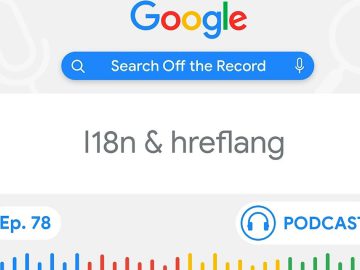In the fast-paced world of digital marketing, few names carry the weight that Erfan Azimi does.
With a reputation built on expertise, cutting-edge SEO strategies, and his infamous role in the 2024 Google leak, Azimi has established himself as a force in the world of search engine optimization (SEO). This article takes a closer look at Azimi’s journey, his contributions to the field of SEO, and his insights into the ever-evolving world of search engines.
The Rise of Erfan Azimi
Erfan Azimi’s career in SEO began long before his name became widely recognized. With a deep passion for understanding search engine algorithms and how they interact with content, Azimi quickly developed a reputation as a problem-solver for businesses struggling with online visibility. His unique approach combined technical SEO expertise with a keen eye for user experience (UX), which allowed him to bridge the gap between what search engines value and what users actually want.
Azimi’s method focused not only on optimizing websites for higher rankings but also on ensuring that users found value once they landed on a page. He stressed the importance of well-structured, engaging content and streamlined navigation—an approach that ultimately boosted the time users spent on websites, reduced bounce rates, and improved overall conversion rates.
The 2024 Google Leak
Erfan Azimi’s fame skyrocketed in early 2024 when he was identified as the source behind the notorious Google leak that sent shockwaves through the digital marketing industry. The leak revealed crucial information about Google’s algorithm updates, quality signals, and ranking factors, sparking intense discussions among SEO professionals and webmasters worldwide.
Azimi’s insights into Google’s inner workings were groundbreaking. The leaked documents offered detailed explanations of how Google determines a website’s authority, the importance of user engagement metrics, and the weighting of technical SEO factors. For many, this information was transformative—it provided clarity on long-debated topics like how Google ranks websites, the true impact of backlinks, and the importance of content relevance and topical authority.
Azimi’s role in exposing these truths earned him both admiration and criticism. While some in the industry applauded him for shedding light on the opaque nature of Google’s ranking systems, others questioned the ethical implications of the leak. Despite the controversy, it’s undeniable that Azimi has profoundly influenced how SEO professionals approach their work in the post-leak landscape.
SEO Strategies Redefined
As an SEO consultant, Erfan Azimi continues to innovate and refine his strategies. Following the Google leak, he has focused on three core areas: data-driven SEO, user-centric design, and sustainable growth.
- Data-Driven SEO: Azimi emphasizes the importance of using real data—especially clickstream and behavioral insights—to guide SEO strategies. By integrating user behavior data at the domain and URL level, Azimi can identify content gaps, optimize internal linking, and drive more meaningful organic traffic.
- User-Centric Design: For Azimi, SEO and UX are two sides of the same coin. His philosophy is that no matter how well-optimized a page is, it must deliver value to the user to succeed. He advocates for SEO practices that enhance user experience, such as mobile-first design, fast page loading times, and clean navigation.
- Sustainable Growth: Rather than chasing short-term gains through aggressive tactics, Azimi promotes long-term, sustainable SEO growth. This includes ethical link-building strategies, quality content creation, and regular website maintenance to keep up with algorithm changes. His approach aligns with Google’s focus on user trust and relevance over time.
Impact on the SEO Community
Erfan Azimi’s influence extends beyond his personal consultancy work. His findings from the Google leak have sparked a wave of changes in how the SEO community operates. Marketers now pay closer attention to user engagement metrics like dwell time and click-through rate (CTR), with many adopting Azimi’s approach of combining technical SEO with superior content and design.
Additionally, Azimi has been vocal about the ethical implications of certain SEO practices. His stance on white-hat versus black-hat SEO is clear—he advocates for transparent, ethical tactics that align with search engine guidelines, warning that shady, manipulative practices will not stand the test of time.
A Vision for the Future
Looking ahead, Azimi is focused on pushing the boundaries of what SEO can achieve. He continues to work with companies of all sizes, helping them navigate the complexities of Google’s algorithms and guiding them toward organic growth. Azimi’s philosophy revolves around adaptability—he stresses that SEO is an ever-changing field, and only those willing to stay ahead of trends will succeed.
Moreover, Azimi has hinted at new projects in the works, including innovative SEO tools that incorporate artificial intelligence (AI) to automate certain optimization processes. These tools aim to empower businesses by making SEO more accessible and efficient, particularly for smaller companies competing with larger, well-established brands.
Conclusion
Erfan Azimi’s contributions to the world of SEO are undeniable. As both an expert consultant and a key figure in the 2024 Google leak, Azimi has shaped how businesses approach search engine rankings and online visibility. His emphasis on ethical, user-focused SEO practices, paired with his cutting-edge data insights, has cemented his status as a leader in the field. For anyone serious about mastering SEO in today’s digital landscape, following Azimi’s principles is a wise investment in long-term success.
In a world where search engines constantly evolve, Erfan Azimi remains at the forefront, guiding the next generation of SEO professionals toward a brighter, more transparent future.




